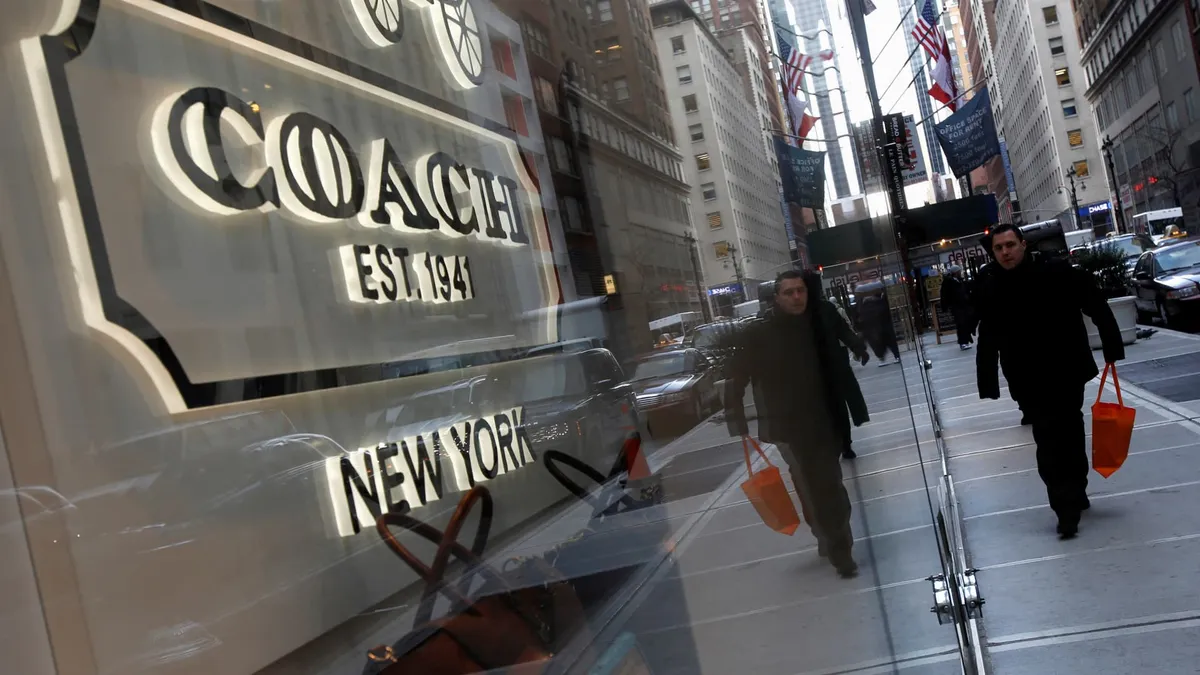
Shares of Coach and Kate Spade parent company Tapestry experienced a significant decline on Thursday, following the announcement that rising tariffs will impact profit margins, despite ongoing sales growth. The renowned handbag, shoe, and accessory maker revealed that the financial burden from increased duties is projected to reach a staggering $160 million for the upcoming fiscal year, significantly affecting its profitability.
Tapestry provided an earnings forecast for the full fiscal year 2026, estimating profits in the range of $5.30 to $5.45 per share. This estimate falls short of the expectations set by analysts surveyed by FactSet, who predicted earnings of $5.49 per share. During the earnings call, Chief Financial Officer Scott Roe noted that sales trends have remained robust; however, he cautioned that the company is grappling with more significant profit challenges due to tariffs and duties than previously anticipated.
One of the key factors contributing to Tapestry's profit headwinds is the earlier-than-expected termination of the de minimis exemptions, which previously allowed items valued at $800 or less to enter the United States duty-free. The suspension of this rule, along with increased tariffs on various imports, has compounded the financial pressures faced by the company. Tapestry, however, remains optimistic about its sales growth for the fiscal year, projecting revenues of approximately $7.2 billion—excluding the recently sold Stuart Weitzman brand—indicating low single-digit growth compared to the previous year.
Earlier this year, Tapestry finalized an agreement to sell the Stuart Weitzman shoe brand to Caleres, the owner of Dr Scholl's footwear, for $105 million. The company's fourth-quarter earnings and revenue for fiscal 2025 exceeded Wall Street's expectations, highlighting its resilience in a challenging market. Recent reports from various retailers and consumer brands have shed light on strategies being employed to mitigate the impact of higher tariffs, which have recently come into effect after several delays and extensions.
In response to these challenges, many companies are exploring different tactics, including relocating manufacturing to alternative countries, increasing prices on selected products, reducing promotional activities, and concentrating on trendy items that are more likely to attract consumer interest. For example, Crocs CEO Andrew Rees stated in an earnings call that the company is scaling back orders for the latter half of the year in anticipation of weaker demand from retailers. Additionally, Crocs is reclaiming some older inventory from its Heydude shoe brand and supplying partners with newer stock to stay competitive.
Despite the challenges posed by tariffs, Tapestry's Scott Roe emphasized that the company's cautious outlook is not indicative of a declining business trajectory. He reported that demand has not only remained steady but has also accelerated in the current quarter. Roe articulated that adopting a prudent stance early in the fiscal year is vital for the company's long-term success. Tapestry is actively focusing on strategies to mitigate the effects of tariffs, including diversifying its global manufacturing footprint and seeking operational efficiencies.
In conclusion, while Tapestry faces notable headwinds due to tariff increases, the company’s strategic adjustments and proactive measures may help it navigate through these financial challenges while continuing to pursue growth in the competitive fashion market.